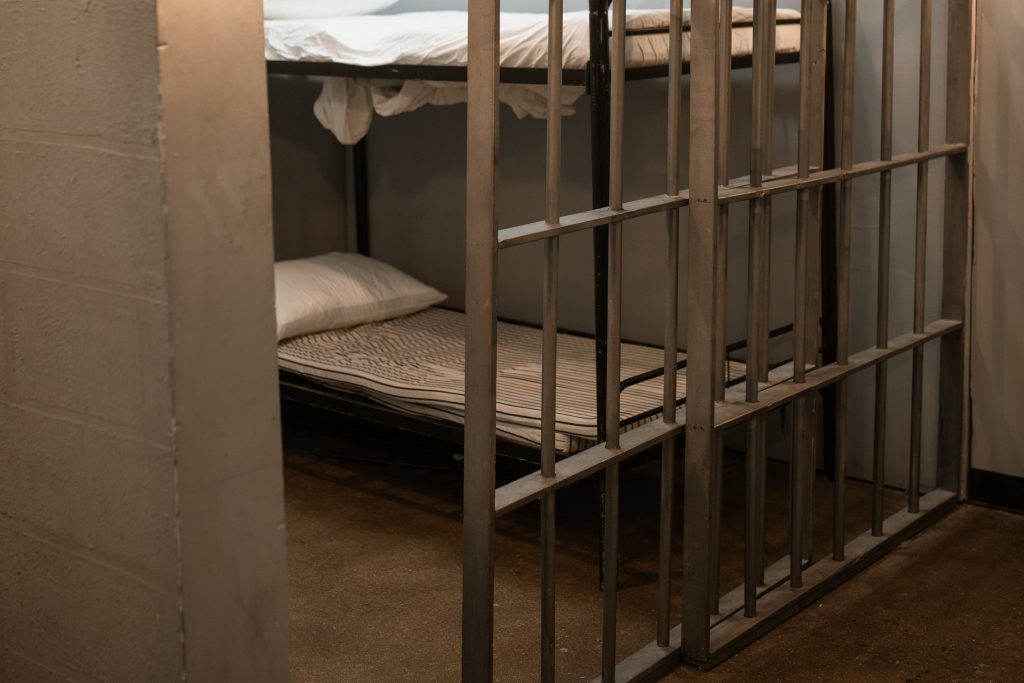
The Case at Bar in Oklahoma.
The Supreme Court has agreed to review a wrongful conviction case coming out of Oklahoma. Richard Glossip is a death row inmate who was convicted of a murder that happened in 1997. After years of deliberations as to whether this case was worthy of review, the Supreme Court justices voted 8-0 to take the case. The issue the Court will be deciding is whether Oklahoma’s suppression of evidence about the mental state of a key state witness and the circumstances that led to the testimony of this witness violated Glossip’s Due Process rights under the Fourteenth Amendment. If the Court decides that Glossip’s due process rights were in fact violated, then Glossip’s conviction would be reversed. Although the conviction would be reversed, Glossip would not immediately be released. Instead, a new trial would take place in which the state would have the opportunity to obtain a lawful conviction if the evidence allowed.
The witness testimony in question is that of Justin Sneed. Glossip’s 2004 conviction “hinged almost entirely” on Sneed’s testimony, who was 19 at the time. Sneed confessed to stabbing the victim and claimed that Glossip offered to pay him to carry out the murder. Sneed came forward blaming Glossip after detectives had suggested Glossip’s name multiple times to Sneed and made him aware that he was facing a possible death penalty for the murder, increasing the likelihood that Sneed’s confession and implication of Glossip could have been coerced through pressure. Defense attorneys were not made aware that at the time that Sneed was being treated for bipolar disorder and had a history of mental illness at the time of his testimony against Glossip. Importantly, the prosecutors also did not tell the Glossip’s attorneys that Sneed expressed that he wanted to take back his confession. Additionally, there are allegations that the prosecution lost 10 boxes of evidence before the trial took place.
Why Are Wrongful Convictions Problematic?
When a person is wrongfully convicted, it does not necessarily mean that the person is innocent and should not have been found guilty. A wrongful conviction usually means there was some kind of mistake when the case was being handled. This could mean that there was ineffective assistance of counsel, there was evidence admitted that should not have been, or it could mean that there were poor ethics at play that resulted in evidence being hidden, among other things. These convictions are problematic for multiple reasons.
The first is that when there are wrongful convictions the general public can lose faith in the criminal justice system, which causes the system to lose legitimacy and power. If people do not believe that the criminal justice system actually produces justice, then then there is the potential that instead of looking to the government for help and protection, they instead take matters into their own hands because they think they can resolve the situation better. Each individual carrying out what they subjectively believe to be justice would lead to total chaos.
Another reason that wrongful convictions are a problem is the effect that it has on the wrongfully convicted person. Studies have shown that even just a few days of incarceration can alter the trajectory of a person’s life and even make them more likely to commit crimes in the future. This makes preventing wrongful convictions even more important because although a wrongful conviction does not necessarily equate to innocence, it is possible for the two to overlap. Sentencing an innocent person to incarceration, where they can possibly spend years of their life before convincing a court to take their appeal, can completely alter their life and their behavior in a negative way and could actually lead to more crime.
The Supreme Court and Wrongful Convictions.
The current Supreme Court is comprised of 6 conservative justices and 3 liberal justices. While the political leanings of justices are not supposed to factor into the rulings that they make, it has become apparent that this may not always be the truth. Therefore, it is helpful to look and see how conservatives view wrongful convictions in general to get an idea of how the current Court will view this case.
When looking historically at Supreme Court Justices who were conservative, we consistently see arguments that the criminal justice system exists primarily to reach final judgments when looking at an individual’s guilt. On the other hand, liberal justices tend to argue that the primary goal of the criminal justice system is to determine whether the defendant is guilty and prevent convictions of innocent people. The Court is primarily conservative at this moment in time, which makes it more likely that these justices will argue the judgment should remain final. While political views do arguably play a role in the decisions justices make, it is still their job to ensure that the laws and the Constitution are being followed and the criminal justice system remains functional. The two competing views; the want for finality and the need for legitimacy, will likely influence the Court’s decision in Glossip’s case. As to which view they side with, only time will tell.
Sources:
Alexandra Natapoff, The High Stakes of Low-Level Criminal Justice, 128 YALE L. J. 1648 (2019) (reviewing Issa Kohler-Hausmann, MISDEMEANORLAND).
Ian Millhiser, The Supreme Court’s Latest Opinion Means Innocent People Must Remain in Prison, Vox, (June 22 2023, 3:10 PM).
Katie Buehler, High Court will Review Oklahoma Inmate’s Innocence Claim, Law 360, (Jan. 22, 2024, 10:32 AM).
Robert J. Norris, Jennifer N. Weintraub, James R. Acker, Allison D. Redlich & Catherine L. Bonventre, The Criminal Costs of Wrongful Convictions: Can We Reduce Crime by Protecting the Innocent? 19 CRIMINOLOGY & PUB. POL’Y 367 (2020).
Nina Totenberg, The Supreme Court is the Most Conservative in 90 Years, NPR, (Jul. 5, 2022, 7:04 AM).
Torry Johnson, Prosecutorial Ethics and Wrongful Convictions, 1 BELMONT CRIM. L.J. 37 (2018).

